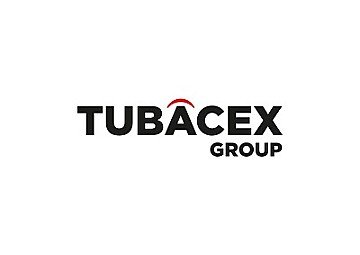The VIII Basque Country Industrial Forum, held at the University of Deusto, brought together key industry leaders and institutions to discuss critical topics such as decarbonization, energy efficiency, digitalization, and the financial ecosystem needed to drive the energy transition. Organized by El Economista in collaboration with Deusto Business Alumni, the event underscored Euskadi’s commitment to becoming a leader in sustainability.
The forum was introduced by Anton Azlor Villa, Vice President of Sales at TUBACEX and President of Deusto Business Alumni, “For the past 150 years, industry has been the main driver of our well-being in this country; the industry creates stable, higher-paying jobs, fosters a specialized and competitive subcontracting ecosystem, and drives R&D projects in collaboration with our Basque science, technology, and innovation network”, Azlor stated.
Diego Herrero de la Torre, Chief Innovation Officer at Tubacex, participated in the forum’s second panel discussion, focusing on strategies for advancing decarbonization. Diego delivered a compelling presentation on the company’s challenges and opportunities in transitioning to green steel, highlighting the issue of availability over cost: “We already have clients requesting decarbonized steel and willing to pay a premium for it, but we cannot yet supply it due to availability constraints. This challenge also represents a significant opportunity,” Herrero stated.
A Collaborative Approach to Decarbonization
Herrero explained that the company’s current reliance on gas combustion for steel production presents a barrier to achieving fully decarbonized steel. Tubacex is exploring short- and medium-term solutions such as biomethane, while investing in long-term technologies like hydrogen and electrification. “Achieving balance between these three solutions is key; the hurdles we face today require diverse capabilities and critical mass. Collaborative development will help us remain competitive and gain visibility.”
Circular Economy as the Future of Sustainability
Herrero also highlighted the importance of tackling carbon footprints at the raw material level: “While emissions are currently in the spotlight, raw materials have a greater impact. In the near future, we will discuss circular economy as a cornerstone of sustainability.” The panel, moderated by El Economista delegate Maite Martínez Santibáñez, also featured experts from BilbaoPort, TECNALIA Research & Innovation, and Grupo Teknia, exploring cutting-edge strategies and technologies for decarbonization.
Tubacex’s active role in the discussions reaffirmed its leadership in innovation and its commitment to driving sustainable industrial solutions in the Basque region and beyond.


